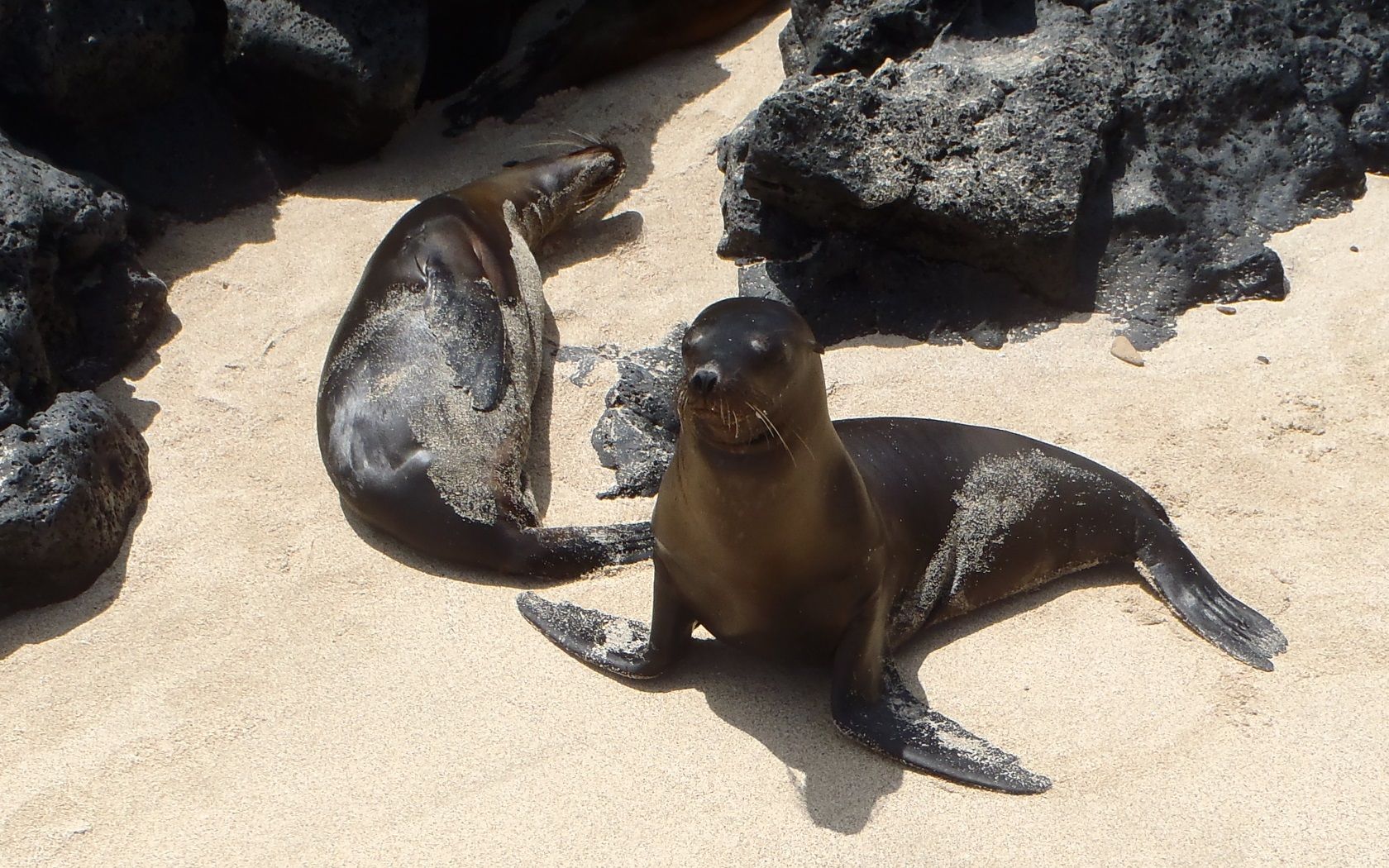The Galápagos Islands, an amazing archipelago of islands, are located 1,000 km west of continental Ecuador. The islands are home for many endemic species, which means they’re unique there. Explore now, what Charles Darwin was finding, when he reached the magical islands.
Galápagos Giant Tortoise
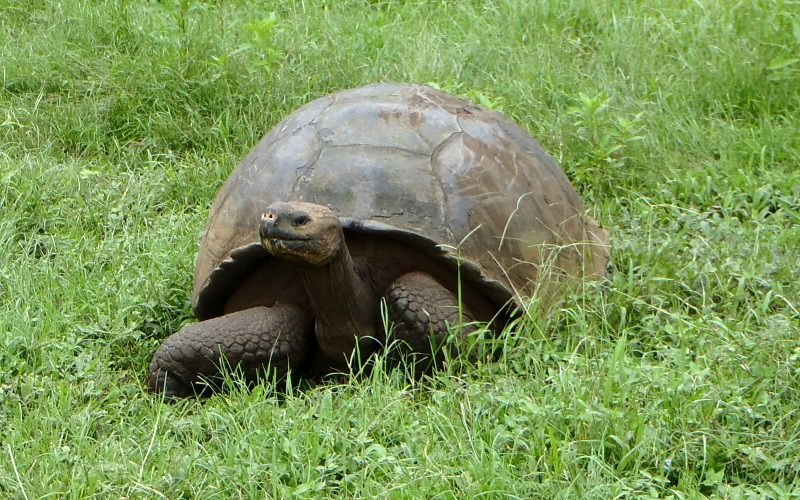
The most famous animal on the Galápagos Islands for sure is the Galápagos giant tortoise which is the largest living species of tortoise. They can reach an age of over 100 years. On every Galápagos Island exist different types of the Galápagos tortoise which adapted over the years to the conditions of the different islands.
Blue-Footed Booby
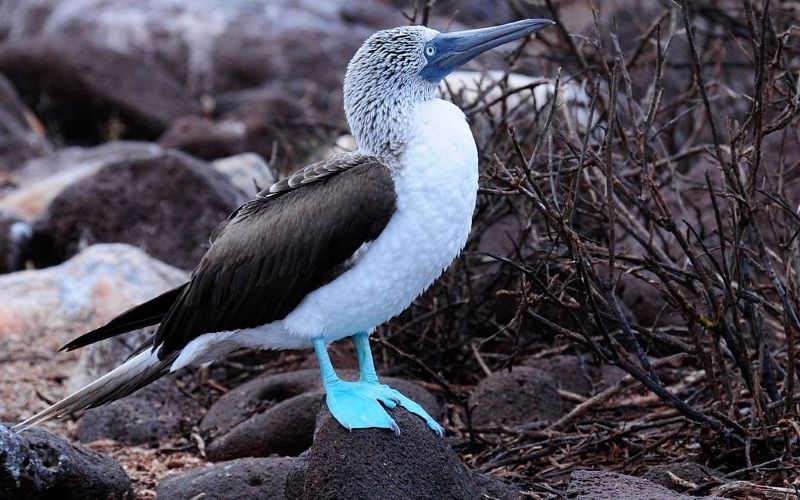
This bird has its name from his blue feet, which they use to attract the female blue-footed boobies. They are very good flyers and divers — their nourishment consists of fish. Half of the population worldwide lives on the Galápagos Islands.
Galápagos Sea Lion
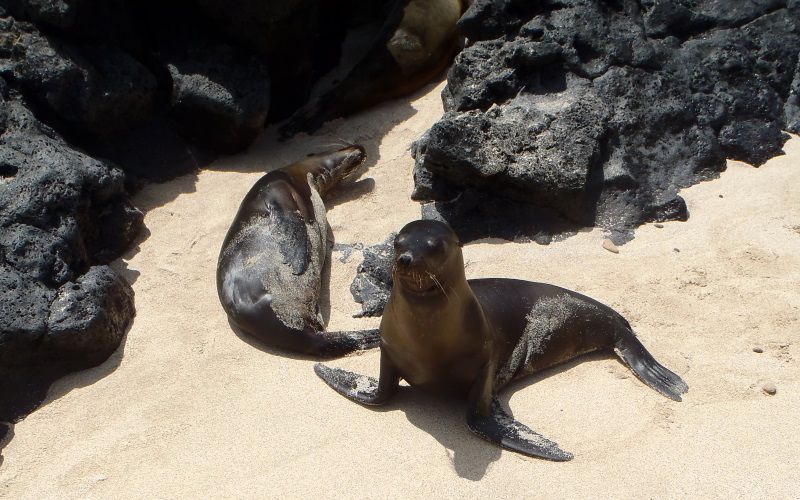
Galápagos sea lions you find everywhere on the Galápagos Islands. Sometimes they even swim with people while they are snorkeling. The Galápagos sea lions look very similar to the Californian sea lions, but compared to them, they have a smaller sagittal crest and a shorter muzzle.
Galápagos Penguin
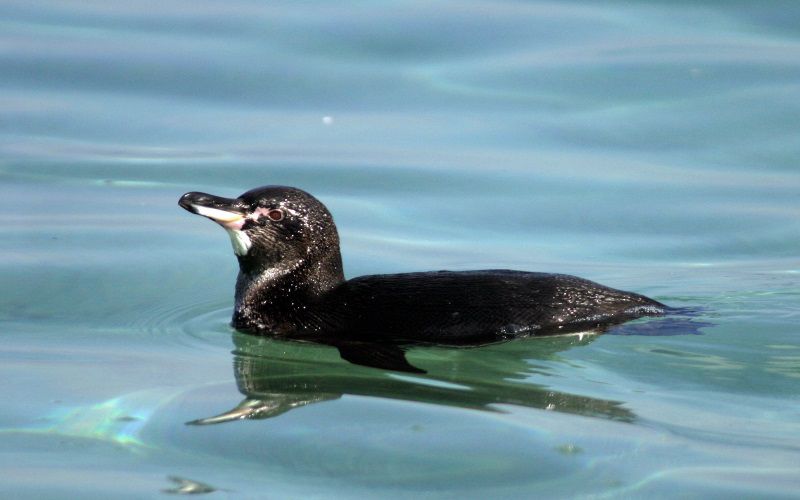
The Galápagos Penguin is the rarest species of penguins worldwide and is critically endangered. They are the only penguin species that also breed on the northern hemisphere. 95% of the penguin population of the Galápagos Islands lives on the islands Isabela and Fernandina, the rest of them live on the island Santa Cruz.
Marine Iguana
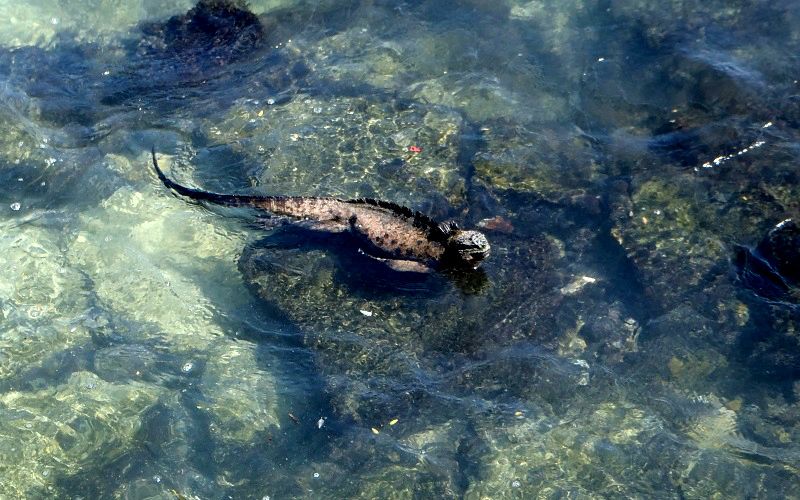
On all islands of the Galápagos you can find the Marine iguana. It’s the extant species of lizards that forage in the sea, making it a marine reptile. A male iguana can reach a length of 1.30 metres.
Originally published on Ailola by Gina Debortoli on February 29, 2016.
